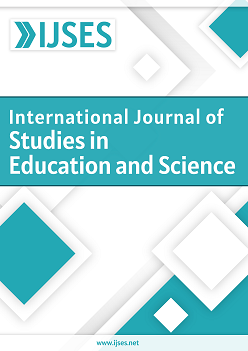Enhancing Critical Thinking Skills in Geometry through the Guided Discovery Approach with GeoGebra
DOI:
https://doi.org/10.46328/ijses.110Keywords:
Guided Discovery Approach, GeoGebra, Critical Thinking, GeometryAbstract
In this modern era of K-12 curriculum, if students are expected to be knowledgeable and skilled, it is a requirement for the teachers to meet and cope with the necessary skills and competencies for the students to be more competent. This study is developed to investigate the effect of the Guided Discovery Approach (GDA) with GeoGebra on critical thinking skills in ninth-grade geometry students at Baluan National High School during the 2022-2023. Employing a true experimental research design, the study revealed that the student’s level of achievement in critical thinking skills in creating, applying, analyzing, and evaluating both in the conventional and experimental groups increases in mean gain scores of 28.27 and 32.8 respectively. The t-test result further shows a t(28) = 2.70 and a p-value = 0.01 indicating that the GDA with GeoGebra in teaching Geometry significantly improved students' critical thinking. It further reveals a significant increase in post-test scores for the experimental group emphasizing the effectiveness of GDA with GeoGebra. While students moderately accepted GeoGebra, there is no significant relationship between their critical thinking skills and acceptability. The findings underscore the importance of instructional methods in improving critical thinking skills, showcasing the potential of GDA with GeoGebra in Geometry.References
Verallo, E.R. & Cajandig, A.J.S. (2024). Enhancing critical thinking skills in geometry through the guided discovery approach with GeoGebra. International Journal of Studies in Education and Science (IJSES), 5(4), 416-431. https://doi.org/10.46328/ijses.110
Downloads
Published
Issue
Section
License
Articles may be used for research, teaching, and private study purposes. Authors alone are responsible for the contents of their articles. The journal owns the copyright of the articles. The publisher shall not be liable for any loss, actions, claims, proceedings, demand, or costs or damages whatsoever or howsoever caused arising directly or indirectly in connection with or arising out of the use of the research material.
The author(s) of a manuscript agree that if the manuscript is accepted for publication in the International Journal of Studies in Education and Science (IJSES), the published article will be copyrighted using a Creative Commons “Attribution 4.0 International” license. This license allows others to freely copy, distribute, and display the copyrighted work, and derivative works based upon it, under certain specified conditions.
Authors are responsible for obtaining written permission to include any images or artwork for which they do not hold copyright in their articles, or to adapt any such images or artwork for inclusion in their articles. The copyright holder must be made explicitly aware that the image(s) or artwork will be made freely available online as part of the article under a Creative Commons “Attribution 4.0 International” license.

This work is licensed under a Creative Commons Attribution-NonCommercial-ShareAlike 4.0 International License.





